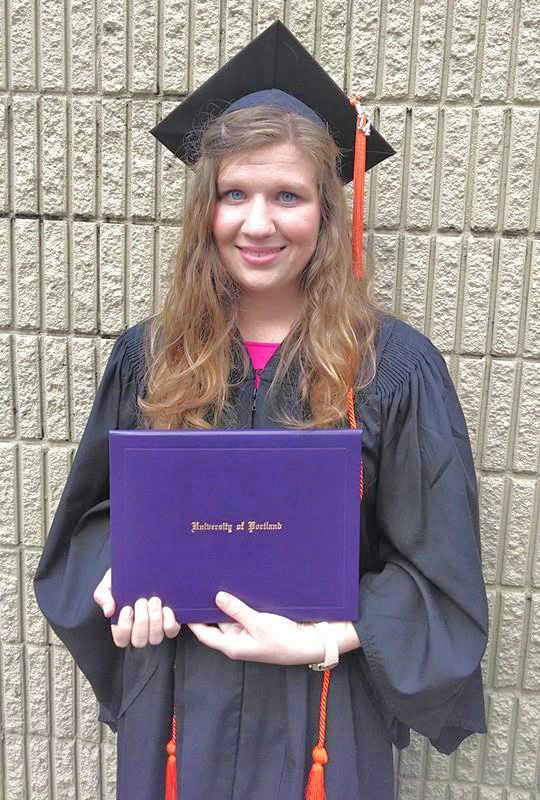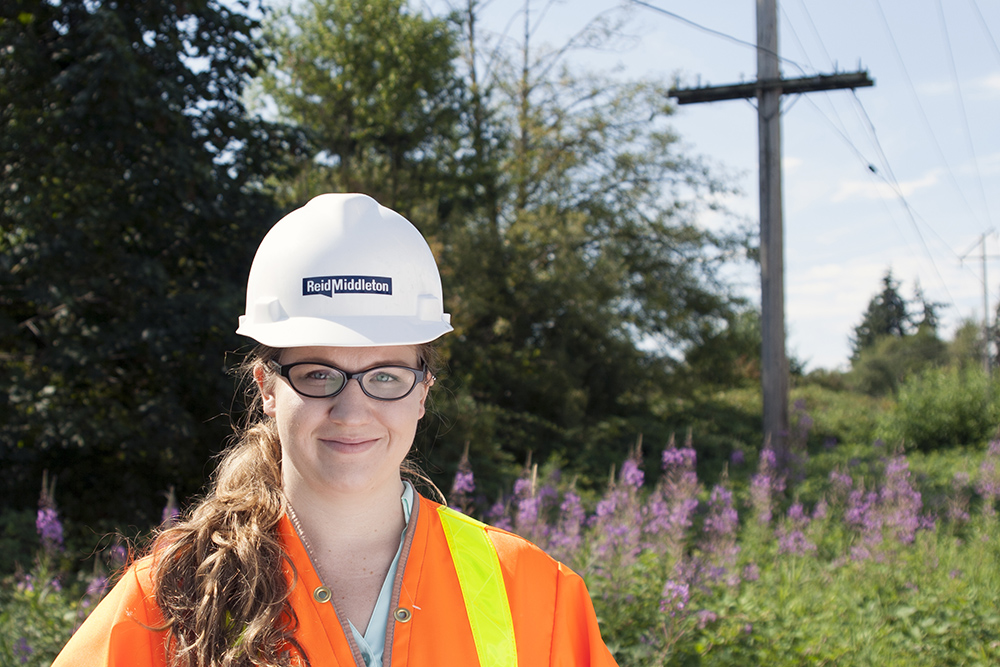 After graduating from the University of Portland in May of 2014, I had one thing in mind: find an engineering job so I could get out of my parents’ house as soon as possible. With this lofty goal, I promptly began applying for every entry level civil engineering position I could find on the west coast and wondering why I hadn’t applied for grad school somewhere cool like many of my classmates. After a summer of intense job hunting, I was offered an EIT position in the Civil Projects group here at Reid Middleton. I will soon be celebrating my first anniversary of working at Reid Middleton and my first year working as an engineer.
After graduating from the University of Portland in May of 2014, I had one thing in mind: find an engineering job so I could get out of my parents’ house as soon as possible. With this lofty goal, I promptly began applying for every entry level civil engineering position I could find on the west coast and wondering why I hadn’t applied for grad school somewhere cool like many of my classmates. After a summer of intense job hunting, I was offered an EIT position in the Civil Projects group here at Reid Middleton. I will soon be celebrating my first anniversary of working at Reid Middleton and my first year working as an engineer.
This first year in engineering has been an overall great experience. Being a part of the civil projects group, I have had the opportunity to work on a wide range of projects. In the past year, I have worked on designing fire service lines, a number of different types of storm water drainage systems, retaining wall designs, demolition plans, site development projects, and water system improvement projects. I get to work on different things every day, which keeps me engaged and passionate about my career choice.
The Difference Between the Classroom & the Workplace
My first year has also come with a number of surprises. Creating cost estimates, being introduced to specification documents and how they are used, and learning how to navigate different jurisdictions’ requirements were all relatively new concepts to me. Technical reports were a part of some classes in college, but I was definitely not expecting to be doing as much writing as I have done in the past year.
In school, I was constantly reminded of the basic theories behind technical writing–being clear, concise, using passive voice versus active voice–but I did very little substantial writing. Short papers or lab reports were the norm, and never more than a page and a half. In the past year, I have prepared or helped to prepare project reports, Stormwater Pollution Prevention Plans (SWPPPs), Technical Information Reports (TIRs), and project specifications. The last three documents contain much of the same information, just tailored to the specific site and project details.
My first step in writing is often to look at a similar report that has been prepared by someone with more experience. From there, I make sure I am aware of all the applicable jurisdictional requirements (every city or county has their own), and often modify the bare bones of an existing report to reflect those requirements. It’s a beginner’s approach, but as I write more and get more comfortable with the process, I will be able to work more from my own knowledge.
Civil Engineering Isn’t Just a Desk Job
I have also been able to go out into the field on different projects. Interacting with contractors, assisting with fire flow testing, and inspecting railroad culverts have all been positive learning experiences. I definitely did not start at Reid Middleton expecting to keep a hard hat, reflective vest and steel-toed boots in my trunk at all times, but that has become my reality.
I find it hard to believe that I have already been working at Reid Middleton for almost a year. It has been one of the fastest years of my life and one of the best. I feel like I have grown in my technical abilities, my confidence in my own skills, and my familiarity with the realities of engineering on a day to day level. The positive and welcoming work environment at Reid Middleton has definitely made for a good first year in the engineering world and the adult working world in general. I couldn’t have found a better company at which to begin my career, and I look forward to celebrating many more milestone anniversaries as part of the Civil Projects group.

